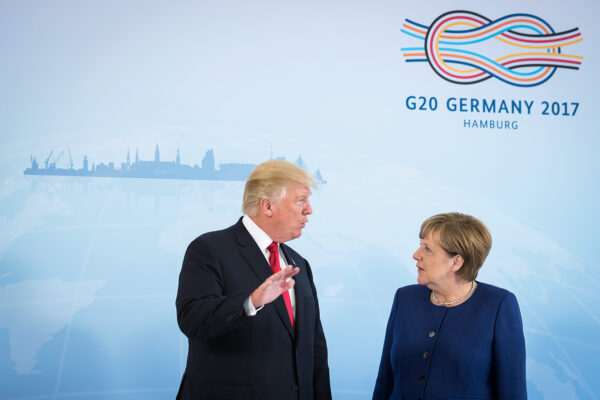
Against the advice of literally all but two of his advisors, American president Donald Trump has announced tariffs on aluminum and steel of 10 and 25 percent, respectively.
The tariffs are not in effect yet, but, citing national-security concerns, the president does have the authority to impose them unilaterally.
The European Commission, which is responsible for EU trade policy, quickly condemned the “blatant intervention to protect US domestic industry” and said it would present countermeasures in a matter of days.
Remember when we were talking about a Transatlantic Trade and Investment Partnership only a few years ago?
Politico has more on the challenge to Europe. Also read my story from July about Trump’s obsession with dying industries at the expense of retail and tech.
Berlusconi confirms Tajani candidacy
Silvio Berlusconi has confirmed that Antonio Tajani, the current president of the European Parliament, is his first choice to become prime minister if Forza Italia can form a government.
Berlusconi himself is barred from public office for another year under a conviction for tax fraud.
A government led by Tajani, a mainstream conservative, would be a surprisingly reassuring outcome from an election that is seeing the rise of populists on the left and right.
Spanish Socialists call for early elections
Spain’s opposition Socialists have called on Prime Minister Mariano Rajoy to call early elections if he is unable to get this year’s budget through Congress.
Rajoy enacted last year’s spending plan with the support of Basque nationalists, but they are unwilling to help him now that his government has suspended self-government in Catalonia.
The Catalans are no closer to forming a new government of their own, which would be the first step to lifting direct rule from Madrid.
The liberal Citizens still support Rajoy — for now. But they would gain the most from early elections. Some polls put them ahead of Rajoy’s conservative People’s Party.
American grand strategy
Adam Garfinkle laments the absence of a debate about grand strategy in the United States and argues this has undermined public support for the country’s engagements around the world.
America’s overarching foreign policy objective hasn’t changed in the last seventy years: to prevent the rise of a hegemon in Eurasia. But it doesn’t seem politicians realize this anymore.
When they are unable to articulate America’s strategy and something goes wrong in the world, as it invariably must, the public starts to wonder why America must shoulder such a heavy burden and votes for leaders, like Trump, who don’t understand either.
